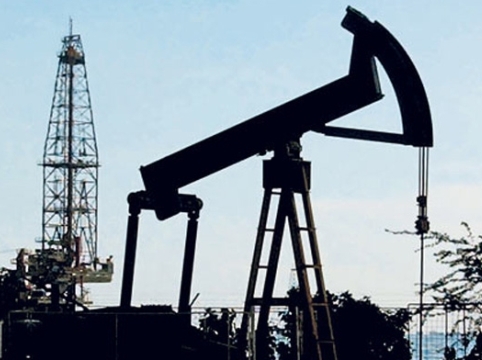Turkey strives to be energy-independent

By Kamila Aliyeva
The growing energy demand along deepening foreign energy dependency has forced Turkey to search for ways to ensure energy independence.
The government is keen on increasing the work on hydrocarbon exploration within the country in the coming years.
The Turkish Ministry of Energy and Natural Resources has granted state-run Turkish Petroleum (TP) a license to conduct hydrocarbon exploration in the provinces of Tekirdag and Kirikkale.
The license for exploration is provided for a period of five years, according to local media.
Turkish Minister of Energy and Natural Resources Berat Albayrak previously revealed plans to perform deepsea drillings and seismic exploration of oil and natural gas resources in the Black Sea and the Mediterranean Sea.
“Energy consumption in Turkey is growing and the search for deposits of valuable hydrocarbons is now ongoing in the Black Sea in order to reduce the dependence on imports,” said Albayrak.
Turkey has the highest rate of growing energy demand among OECD countries over the last 15 years. While the country is able to meet only about 26 percent of its total energy demand through domestic resources, it neighbors enjoy abundant hydrocarbon reserves.
Turkey is geographically located between energy producing countries of the region with more than 75 percent of the world’s proven oil and gas reserves and European energy consumer markets. The country is a natural “energy bridge” between the Caspian, Central Asian and Middle Eastern countries and the consumer markets in Europe.
Along with strengthening its position between East-West and South-North Energy Corridors, Turkey also aims to diversify routes and sources for imported oil and natural gas and increase the ratio of local and renewable energy in the energy mix.
The country aims to invest $11 billion in the energy sector of the country during the period from 2017 to 2023.
Over the past two years, $1.9 billion have been invested in the country's energy sector, while 30 percent of these funds are invested in the development of renewable energy sources.
Turkey is one of the richest countries in the world in terms of renewable resources – hydro, wind, solar, geothermal and others. For geothermal energy the country is ranked first in Europe and seventh in the world. In addition, the solar energy is abundant due to its geographical position in the world.
Turkey is also one of the countries in the world possessing high hydroenergy potential. Wind energy potential in Turkey is estimated at 160 TWh.
Encouraging policies backed by favorable feed-in tariffs are expected to increase their share in the national grid in the coming years. The Turkish government has made it a priority to increase the share of renewable sources in the country’s total installed power to a remarkable 30 percent by 2023.
Moreover, Turkey decided to develop nuclear power energy aiming to decrease negative environmental effects of energy production. the construction of two nuclear power plants (NPPs) in Akkuyu and Sinop are currently underway.
Turkey's share in world oil consumption, which is 95 billion barrels per day, is 0.9 percent. For comparison, this is almost half of the total UK oil imports. Most of the oil coming to Turkey comes via two main routes - the Iraq-Yumurtalik and Baku-Tbilisi-Ceyhan oil pipelines. Some 42 percent of imported oil comes from Iraq, 20 percent from Iran, and about 10 percent or more from Russia and Saudi Arabia.
In addition, Turkey imported 46.35 billion cubic meters of gas last year, 38.72 billion cubic meters of which were imported through pipelines, and 7.63 billion cubic meters fell on LNG imports. Turkey imports gas from Russia, Iran and Azerbaijan. LNG suppliers to Turkey are realized from Algeria, Nigeria and other countries.
Aiming to be energy independent, Turkey has done much work in exploration of new deposits so far. During the first seven months of 2017, a total of 42 wells were drilled, 18 exploration, 7 appraisal and 17 production wells, and 73.867 meters of drilling were carried out in these wells. From the initial year of the petroleum exploration to the end of July 2017, a total of 4776 wells were drilled and 223 fields including 79 natural gas fields and 144 crude oil fields were discovered.
The domestic producible petroleum reserves in the first 6 months of the current year were 332,8 million barrels and unless there are any new discoveries, the lifespan of the total domestic crude oil reserves is 18 years, based on today’s production levels. In 2017, 7.7 percent of the demand for crude oil was met through domestic production, while in natural gas this figure stood at the level of 0.6 percent.
---
Kamila Aliyeva is AzerNews’ staff journalist, follow her on Twitter: @Kami_Aliyeva
Follow us on Twitter @AzerNewsAz
